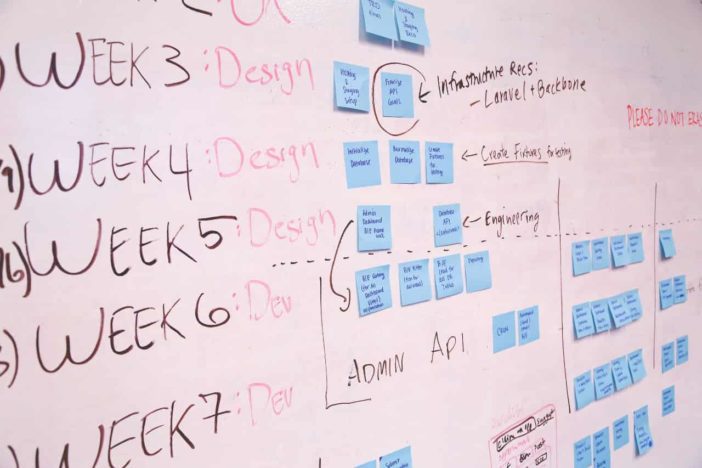Is project management all about meeting deadlines and ensuring timeliness? Does efficient project management stem from academic specializations and higher education? Most certainly not. Not that timeliness and qualifications are unnecessary, but they are two aspects of the skill set required for project management.
Project management is a lot more than performing one’s duties and responsibilities with diligence and effective time management. It demands well-rounded soft and technical skills, ranging from robust communication and discipline to technical prowess and stress management.
Soft skills are just as essential as our qualifications and technical abilities. They help us work alongside team members, ensuring harmonious relationships and a smooth exchange of feedback. Project managers rely on their skills to embrace last-minute changes with considerable ease.
Keep reading to explore crucial project management skills that support career advancement and leadership pursuits.
1. Communication and Coordination
Project management requires teamwork and robust coordination between various departments, team leaders, clients, and other stakeholders. Project managers must maintain a mindful approach towards all stakeholders, aligning projects with their needs to ensure satisfaction. Communication is of the utmost significance while managing people, incorporating feedback, eliminating ambiguities, and satisfying clients.
Communication constraints disrupt the workflow, thereby disrupting a team’s ability to maintain coherence and coordination. It’s hard to gain results when team members are not on the same page or struggling to understand project goals. Project management demands professionals to liaise effectively with their team members and clients.
This requires professionals to constantly tailor their communication style to connect with the target audience. An overwhelming majority of professionals struggle to lead communications with clients, executive leaders, and their superiors. It’s wise to consider pursuing a project management program to build technical prowess to perform better at work. Professional training will enrich your expertise and communication abilities, empowering you with the confidence to lead sensitive projects with precision.
Lack of effective communication abilities results in disruptions, derailing sensitive projects, and garnering client dissatisfaction. The Pulse of Profession report, published by the PMI in 2015, reveals communication as a leading factor in unsuccessful projects. It’s a skill that professionals rely on for all aspects and operations and in various formats. These formats include video conferencing, emails, messaging, and one-on-one conversations.
2. Effective Organization
The ability to organize information, deadlines, resources, and workload are paramount to support efficient project management. Managers and professionals cannot achieve excellence without embracing organization in their work ethic. It may seem like a cliché, but it’s the most instrumental, tangible skill to enjoy undeterred career advancement.
Luckily, organization skills are the easiest to embrace and develop. Organization skills include an array of subskills, such as time management, workload management, and efficient planning. It all boils down to getting the right things done at the right time and ensuring efficiency in your day-to-day workload management.
Project managers and professionals are responsible for organizing their own workload and lending support to team members. The responsibilities increase when other team members rely on your expertise and organizational skills to get things done.
Maintaining a calendar with diligent scheduling allows professionals to stay on top of their responsibilities. It’s also wise to avoid adding too much to your plate. It’s crucial to focus your attention on one thing at a time and avoid overcrowding your schedule. Setting realistic goals and achievable deadlines is vital to stay organized and manage your workload efficiently.
3. Ability to Adapt & Embrace
All professionals across industries and sectors deal with rejection and criticism on their well-researched, diligently prepared plans. You’ve made a spectacular presentation with an appealing layout, detailing your approach for a stellar project. However, the client is dissatisfied and requires extensive changes and improvements. How do you deal with this situation?
The disappointment and stress are natural responses, but it’s crucial to move past the negativity. Even the best-laid plans are bound to get derailed, and therefore, the ability to adapt and embrace change are essential strengths. Project managers must have a positive and flexible mindset towards embracing change and factors that fall outside their control.
Accommodating client demands and criticism during a project are crucial to ensure satisfaction and excellence. Professionals must become adaptable and flexible in responding to last-minute changes without losing their motivation and dedication. It’s normal for clients to change project goals and objectives to align the final submission with their perceived advantages.
It’s not easy to overcome the disappointment of all your efforts going to waste. But it’s crucial to embrace flexibility and equip yourself with adaptability to reduce the fallout. Professionals who look past the disappointment and prioritize client satisfaction successfully steer derailed projects back to effective completion.
4. Mustering Confidence under Duress
The ability to stay confident and calm under extreme pressure is another instrumental skill in project management. Managing stress and reclaiming your confidence is crucial to address client requirements with precision and accuracy. As a project manager, you will constantly find yourself dealing with highly stressful situations. Imagine a client or stakeholder walking out after the final submission, demanding you start again from scratch.
Unflappability and confidence allow professionals to reclaim their efficiency and professionalism in high-pressure situations. Confidence and calmness allow professionals to soothe difficult and stressful conversations with their clients. These skills are instrumental in effective deadline management, especially when your plans go awry.
Professionals must learn how to thrive and work efficiently in chaotic situations, especially in fast-paced environments.
5. A Leadership Mindset
What does a leader’s mindset have to do with meeting deadlines and workload management? You see, a leader’s perspective allows professionals to embrace dynamic problem-solving and analytical reasoning abilities. Leaders don’t see problems; instead, they actively identify and formulate solutions. They see roadblocks as challenges that inspire inventive strategies that allow them to succeed in chaotic situations.
Leadership demands a combination of traits, such as communication, empathy, motivation, and discipline, to get results. Leaders steer projects through chaotic and rough patches, embracing client demands with cognitive agility and optimism. Leadership is indeed the most crucial skill to support project management success and professional growth.
Conclusion
Developing and perfecting skills may seem overwhelming while chasing deadlines and struggling to achieve a healthy work-life balance. Therefore, it’s crucial to learn from your experiences and mistakes and the experiences of others.
Mentorship and professional training are beneficial at building and refining your capabilities. With time, your project management experience will enrich and advance your skills, allowing you to grow professionally. However, you must actively prioritize your learning and growth and gain feedback from your superiors and peers.





